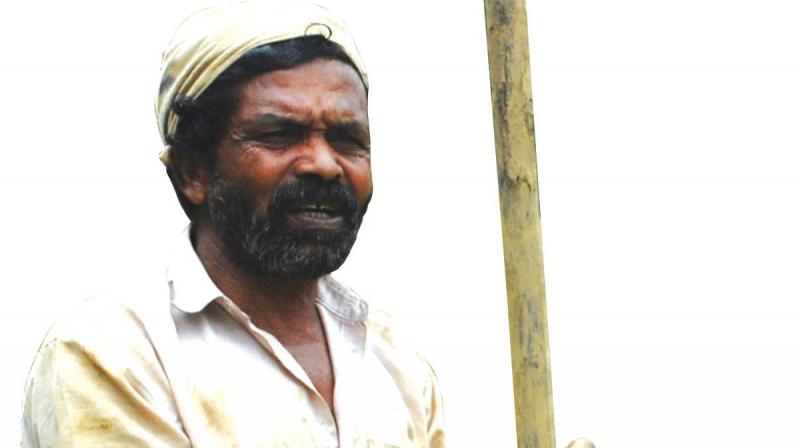2016 Year of Change: Farming no more economical'
Raman is unhappy because all his four children, including two sons, have left farming.

Thiruvananthapuram: Much has been written about Ramettan aka Cheruvayal Raman, from Kurichiya tribe, leading a relentless campaign to preserve century-old tradition of paddy cultivation, which is still prevalent among Adivasis in Wayanad. But he says he has not sold a single stalk of rice since 2004 because his condition is hat buyers should cultivate and return seeds.
Raman recently bagged the Genome Saviour Award 2016 instituted by Plant Varieties Protection and Farmers Rights Authority of India for his lifetime efforts for conservation of traditional rice varieties.
PPVFRA was established by the Central Government under the Protection of Plant Varieties and Farmers’ Rights Act 2001. People from different walks, including students, farmers and researchers here and abroad, visit him to learn ethnic paddy cultivation.
He is trying to save 35 different rice varieties by keeping their seeds. Besides, he has been engaged in conserving trees, herbs, medicinal plants and spices on two and a half acres of ancestral land. Apart from preserving seeds, Raman has been developing ragi, maize, millet and foxtail millet. Though he owned a total of over five acres, he had to be satisfied with half the area after sharing it with family members. Raman is unhappy because all his four children, including two sons, have left farming.
“I don’t earn from paddy cultivation so I can’t give money to my children. They have studied till the tenth standard and are taking care of their own lives as they feel farming is no longer economically viable. Earlier I had over 150 varieties of rice seeds which have since dwindled to 35 varieties, mostly hybrid varieties”, said Raman, a resident of Mananthawady.
He adds it is for coming generations he has been protecting rice seeds, establishing a network of farmers liaising with a distribution mechanism. Rice seeds should not be considered as a commodity.
In his collection, he preserves rice varieties which are six, four and three months old and cultivates each variety on three to five cents.
“I give 1 to 3 kilo of rice seeds to genuine farmers. By giving them free of cost, I must have incurred a loss of Rs 4 to Rs 5 lakh since 2004. For each crop, I need Rs 30, 000 to Rs 35, 000, which I bear myself without depending on grants or subsidy”, says Raman, who started farming at age 10.
He will be the last man depend on bank loan as climactic conditions are unpredictable.

